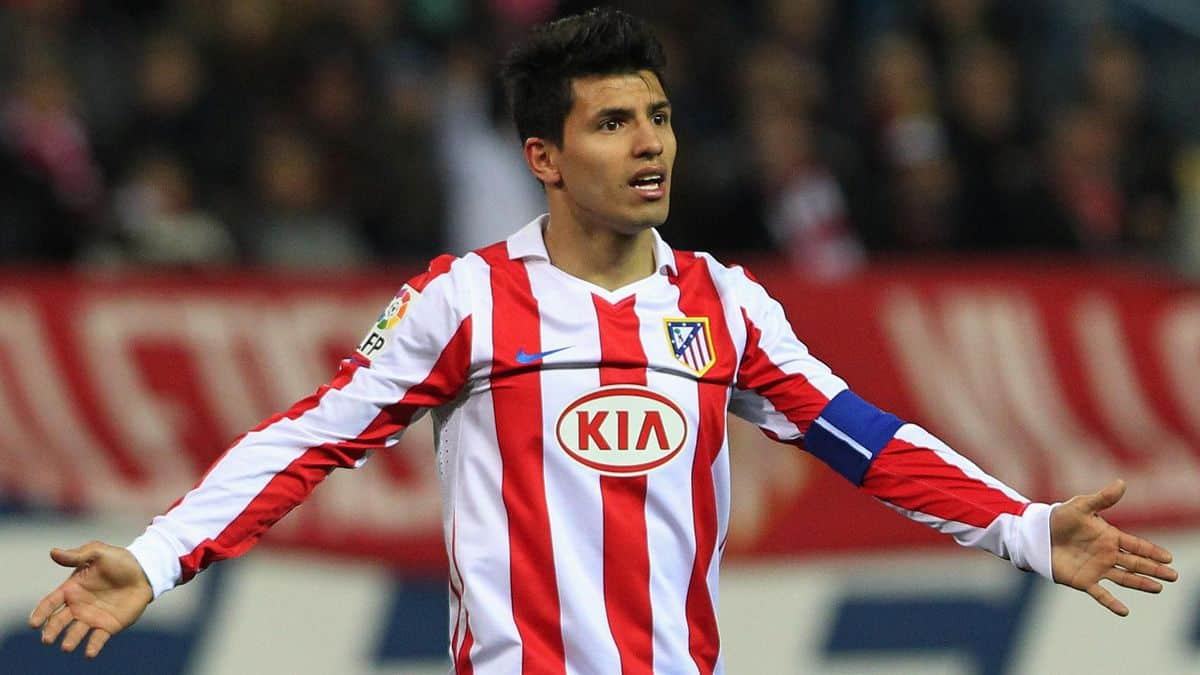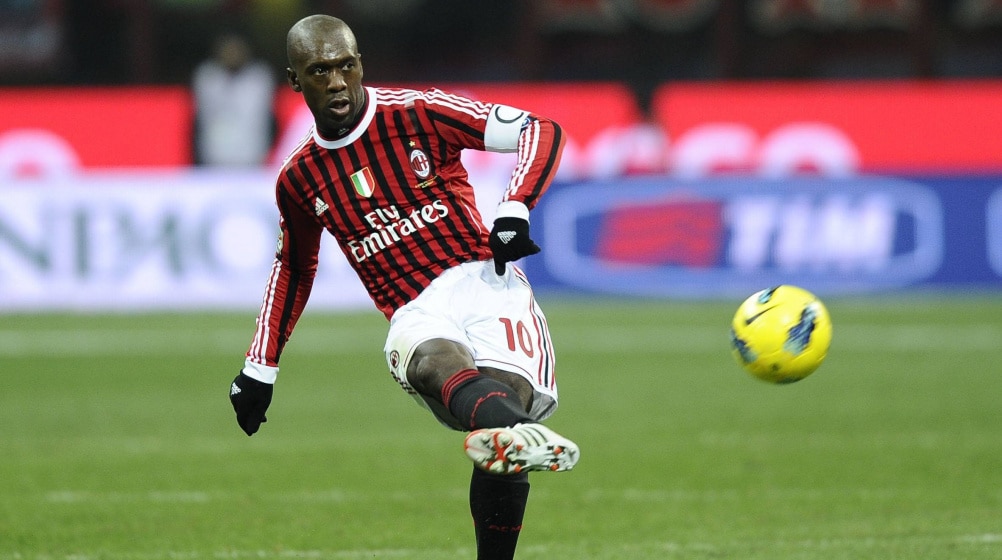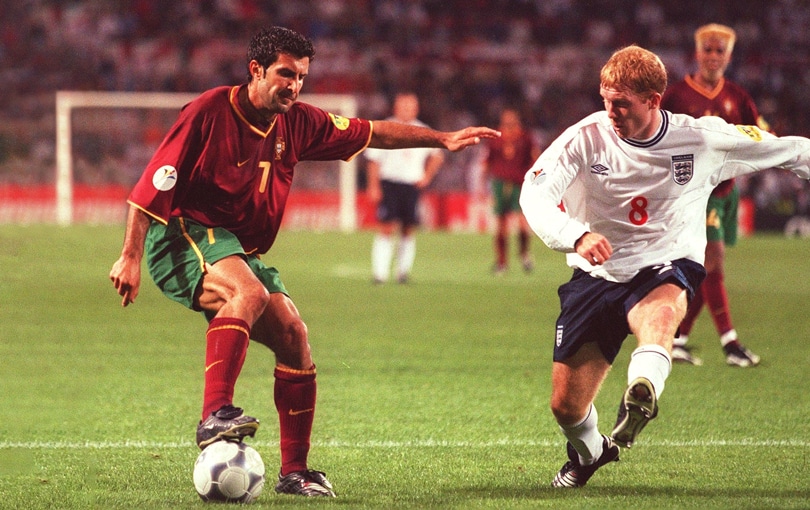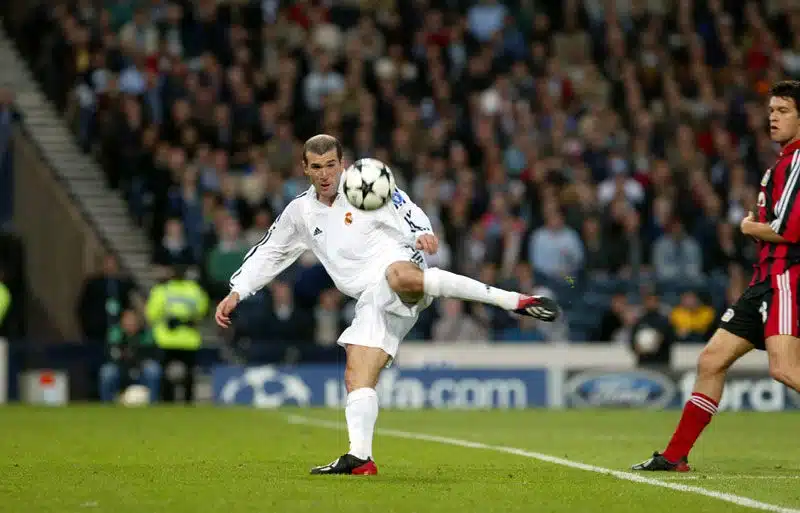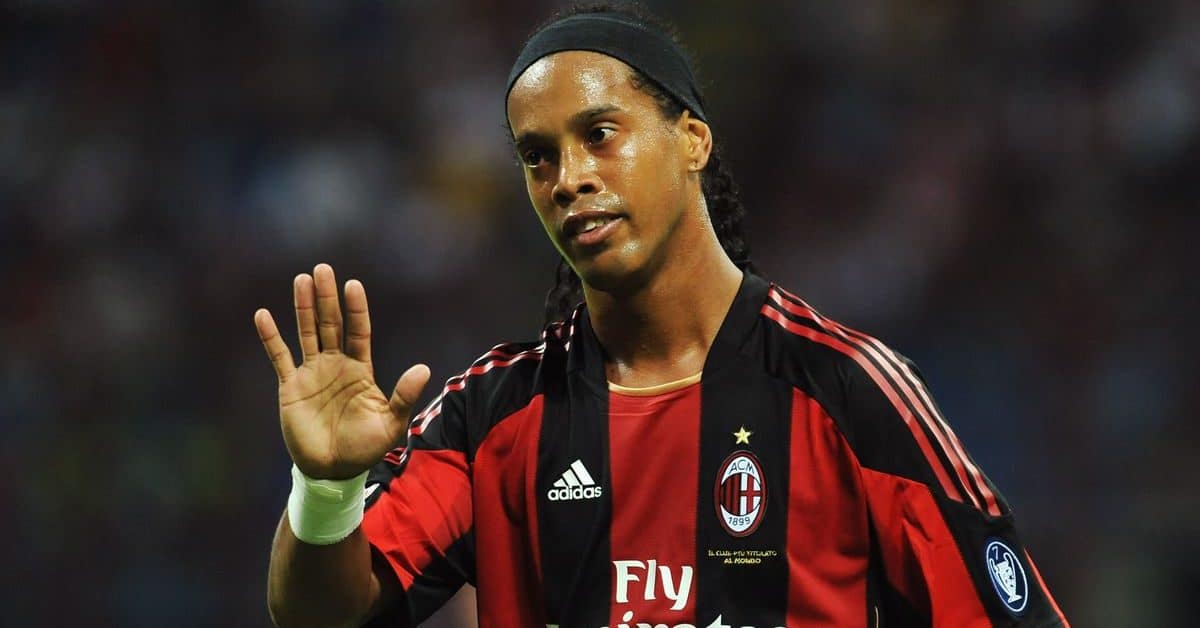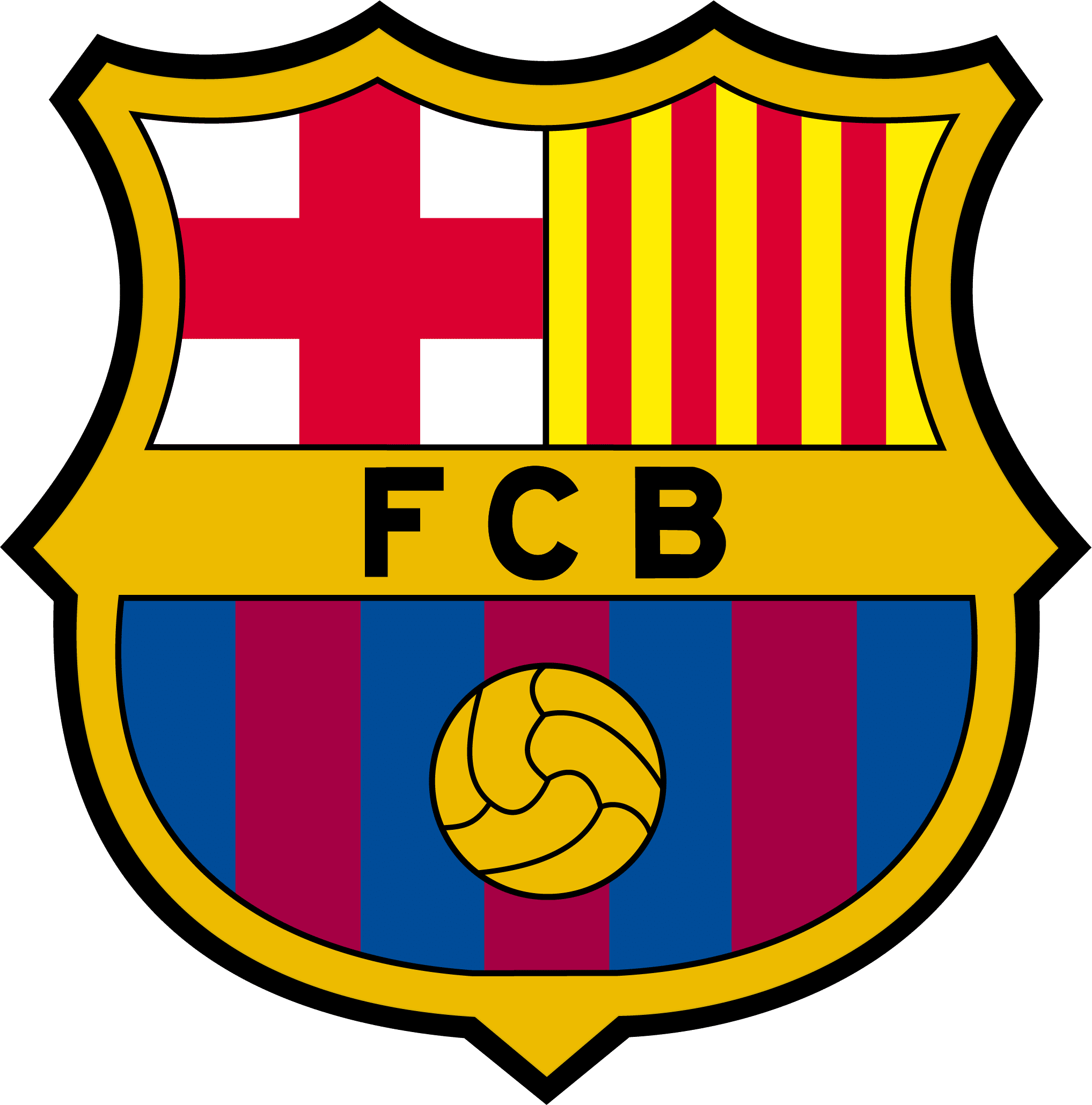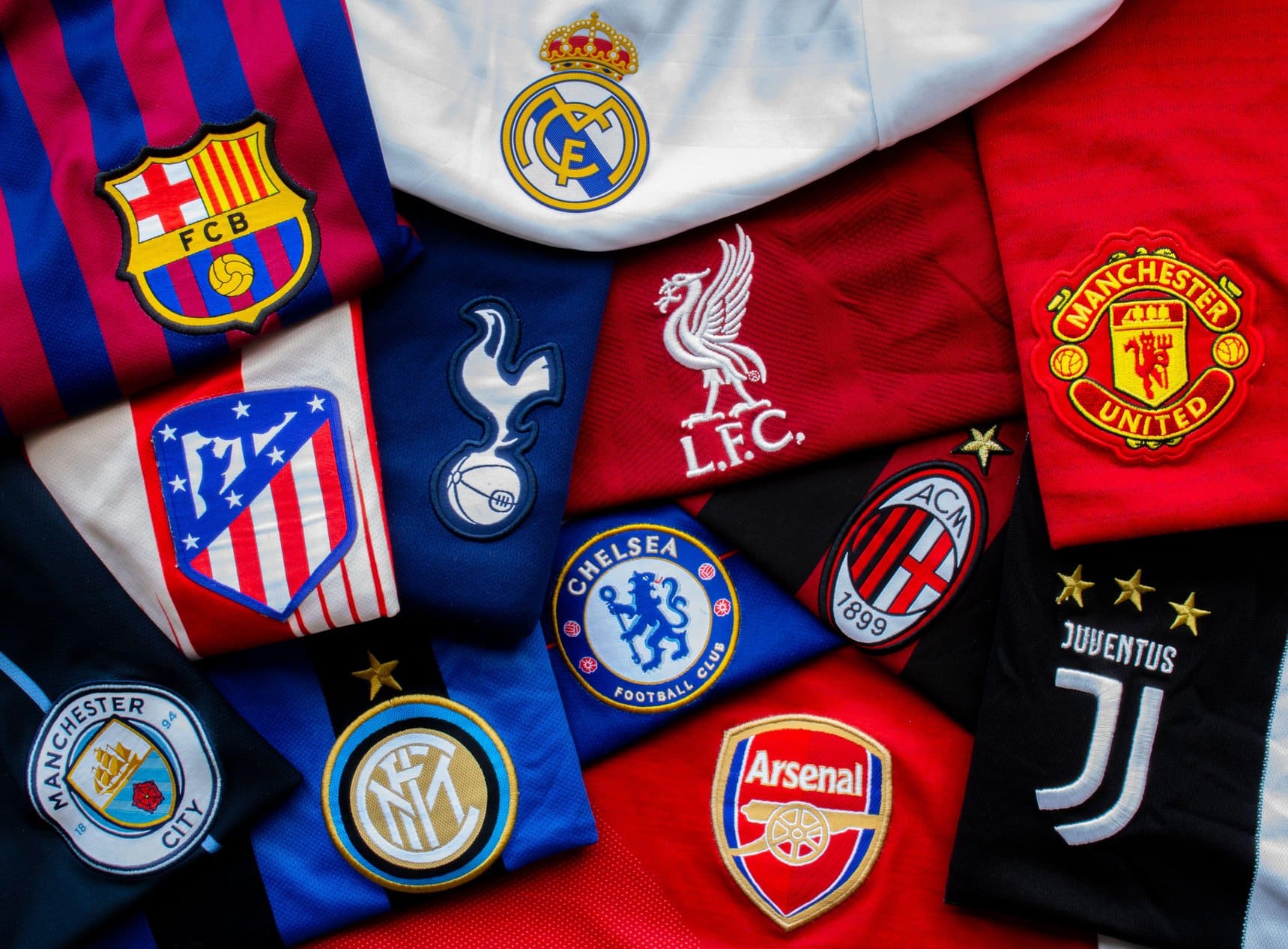Ronaldinho is a name that resonates with football fans around the globe. The Brazilian is celebrated not only for his extraordinary skills on the pitch but also for his infectious joy and charisma.
Born Ronaldo de Assis Moreira on March 21, 1980, in Porto Alegre, Brazil, he rose from humble beginnings to become one of the most iconic figures in the history of football. With dazzling tricks, a unique dribbling style, and an innate ability to entertain,
Ronaldinho captured the hearts of millions during his illustrious career, which included stints at top clubs like Barcelona and AC Milan. His contributions to the sport extend beyond mere statistics; he embodies the spirit of football, reminding us all of the beauty and passion that the game can inspire.
In this article, we will look back at the incredible career of Ronaldinho.
Grêmio 1998-2001
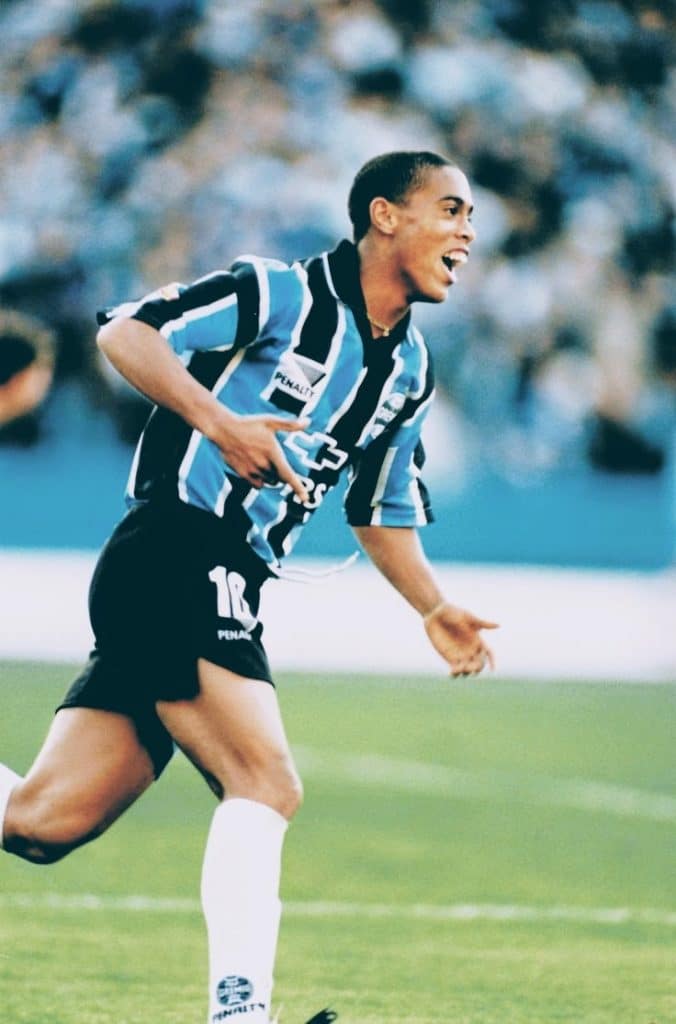
Ronaldinho’s journey in professional football began at Grêmio, a prestigious club in his hometown of Porto Alegre. He joined the youth academy at just seven years old and quickly showcased his unique talent. Making his first-team debut in 1998, Ronaldinho captivated fans with his flair, creativity, and technical skills.
During his time at Grêmio, he played a pivotal role in the club’s success, helping them secure the Campeonato Gaúcho and the Copa Sul in 1999. His performances were marked by dazzling dribbles, audacious free-kicks, and a playful style that set him apart from his peers.
Ronaldinho’s ability to effortlessly glide past defenders and create scoring opportunities for his teammates earned him recognition as one of Brazil’s most promising young talents.
His time at Grêmio threw the talented youngster into the spotlight of world football. By the time he left the club in 2001, Ronaldinho had already established himself as a rising star, laying the foundation for what would become a legendary career in football.
Paris Saint-Germain 2001-03
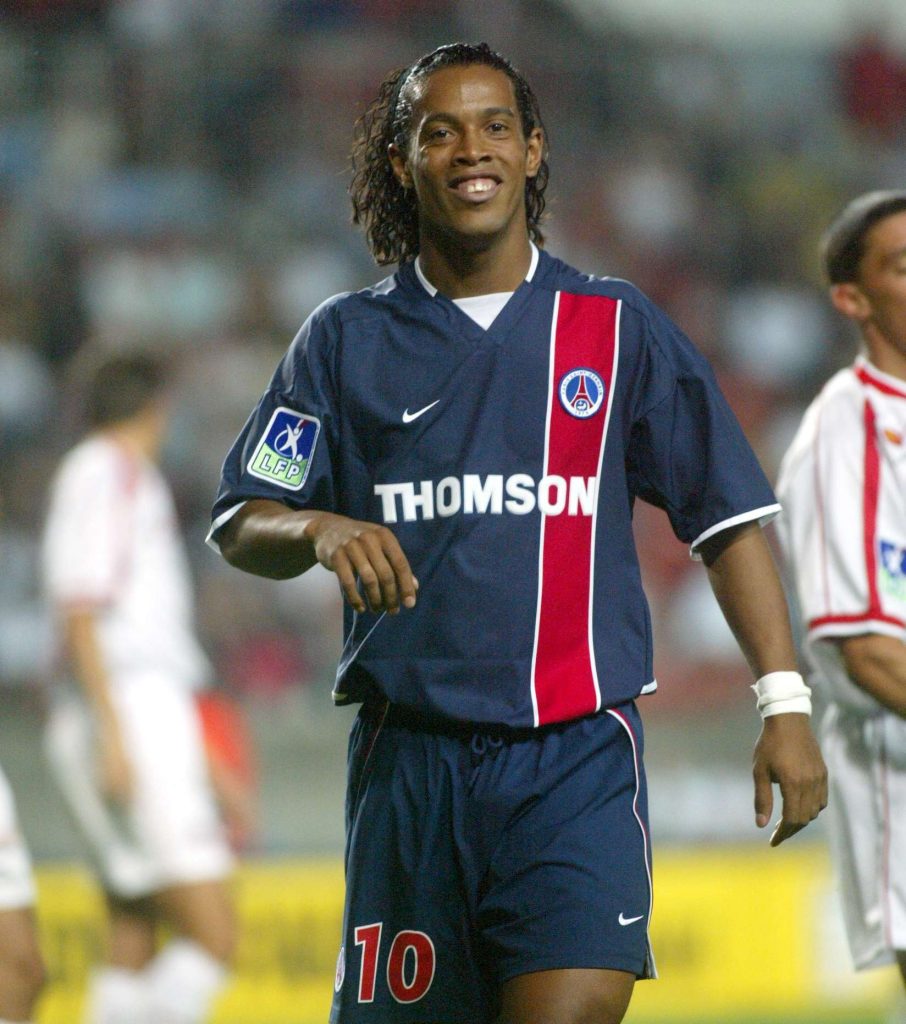
Ronaldinho’s transfer to Paris Saint-Germain in 2001 marked a significant turning point in his career, elevating him to the European stage. Arriving from Brazil, he quickly became a fan favourite, dazzling supporters with his extraordinary skill set and bubbly personality.
During his time at PSG, Ronaldinho showcased his ability to change the course of a match with his creativity and flair. He scored 25 goals in 94 appearances over three seasons. His partnership with teammates like Pedro Pauleta and Jérôme Rothen further enhanced PSG’s attacking prowess.
In the 2002-2003 season, Ronaldinho was instrumental in guiding PSG to the Coupe de France title, solidifying his status as one of the club’s standout players. Despite the club’s struggles to consistently challenge for league titles during his tenure, Ronaldinho’s individual brilliance shone through, earning him the Ligue 1 Player of the Year award in 2004.
His time at PSG laid the groundwork for his eventual move to Barcelona, where he would achieve legendary status, but it was in Paris that he truly began to flourish on the European and global football stage.
Barcelona 2003-08
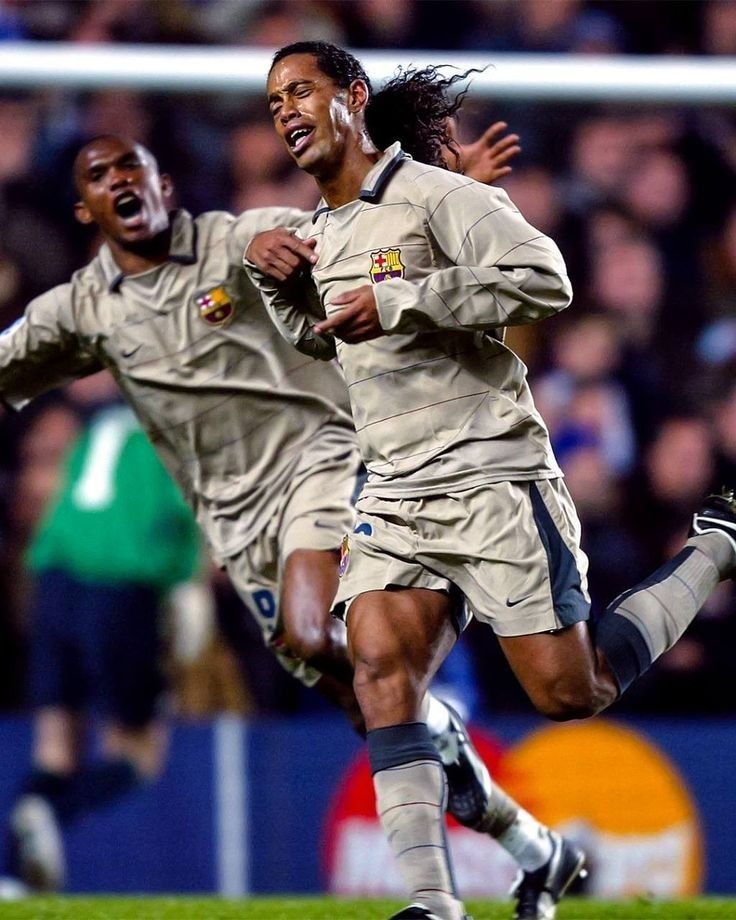
Ronaldinho’s arrival at FC Barcelona in 2003 heralded a new era for the club and the player alike. Transferring from Paris Saint-Germain for around £30 million, he quickly became the centrepiece of a team that was on the brink of transformation.
Under the management of Frank Rijkaard, Ronaldinho flourished, showcasing his extraordinary talent and charisma on one of football’s biggest stages. His first season was nothing short of spectacular; he scored 15 goals and provided numerous assists, helping Barcelona secure the La Liga title in 2004, their first in over six years.
One of his most memorable moments at the club came in a match against Real Madrid in 2005, where he scored two stunning goals, including a free-kick that left the crowd in awe. This performance not only solidified his status as a club legend but also earned him the admiration of rival fans as he was applauded off the field.
In 2005, Ronaldinho was awarded the Ballon d’Or a testament to his influence and brilliance on the pitch. He played a crucial role in Barcelona’s success, contributing to another La Liga title in 2006 and helping the team clinch the UEFA Champions League trophy the same year, their first in over a decade.
Beyond the statistics, Ronaldinho’s impact at Barcelona was profound. He revitalised the club’s global image, attracting a new generation of fans and inspiring teammates like Lionel Messi, who would go on to become one of the greatest players in history.
Ronaldinho’s time at Barcelona was arguably his peak, showing that creativity and an amazing skillet can still win trophies.
AC Milan 2008-11
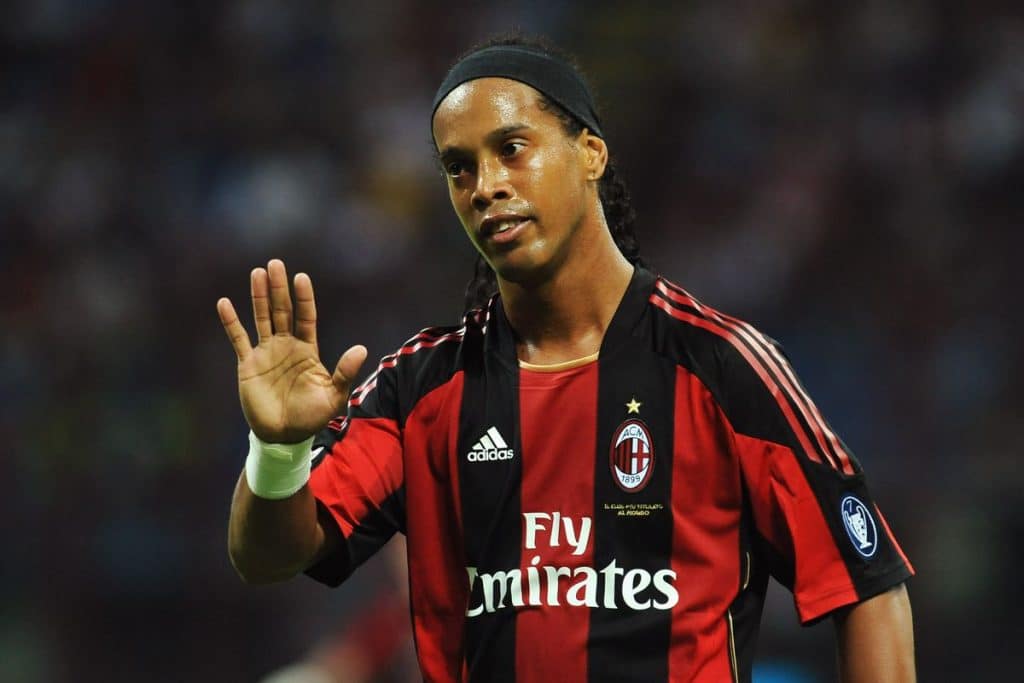
Ronaldinho’s move to AC Milan in 2008 marked the next chapter in his illustrious career, as he sought new challenges in one of Europe’s most storied clubs. Joining a team rich in history and talent, Ronaldinho quickly adapted to the Serie A style of play while maintaining his signature flair. His debut season was impressive, as he scored 10 goals and provided multiple assists, showcasing his creativity and technical prowess.
Playing alongside talents such as Alessandro Nesta, Alexander Pato and Kaká, Ronaldinho contributed significantly to Milan’s attacking force.
Despite facing stiff competition in a league known for its defensive rigour, Ronaldinho continued to enchant spectators with his mastery. His time at AC Milan was not without challenges, as he struggled with consistency and fitness at times, but despite this, his natural talent shone through.
In 2011, after winning the Serie A title, Ronaldinho departed Milan, leaving behind a legacy of brilliance and joy. Ronaldinho’s time at AC Milan, though shorter than his stints at other clubs, remains a cherished part of his remarkable journey in football and would also mark the end of his decade-long stint in European football.
Flamengo 2011-12
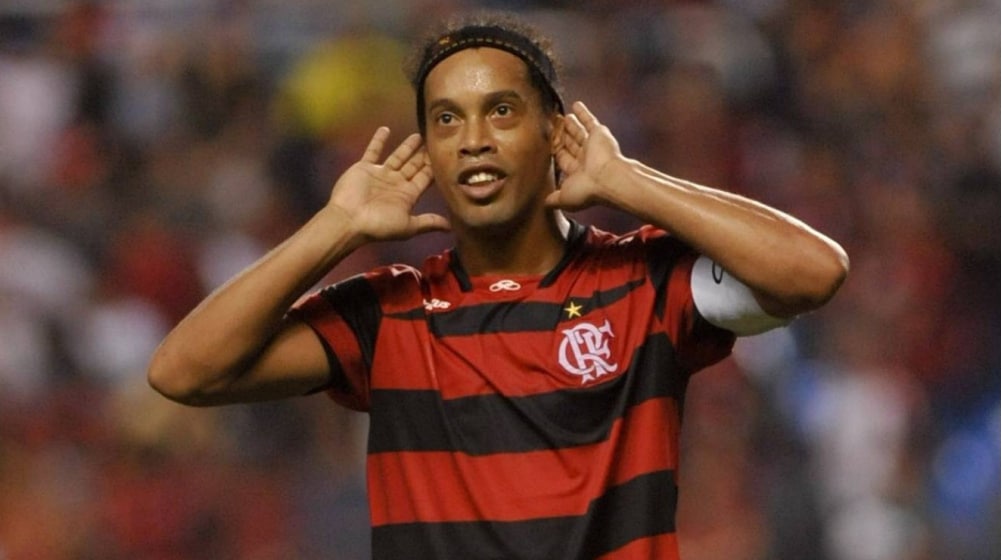
Ronaldinho returned to Brazil in 2011, signing with Flamengo, one of the country’s most prestigious clubs. His arrival was met with immense excitement, as fans eagerly anticipated the chance to see their idol play in his homeland.
During his time at Flamengo, Ronaldinho showcased his enduring talent and flair, quickly becoming a fan favourite. He made an immediate impact, helping the team secure the Campeonato Carioca title in 2011, where he delivered memorable performances and crucial goals.
Despite the challenges of adapting to the Brazilian league’s intense atmosphere, Ronaldinho’s creativity and skill remained evident. However, his time at Flamengo was not without ups and downs, as he faced scrutiny over his fitness and commitment.
Ronaldinho also played in Flamengo’s 5-4 thriller against Santos, which is regarded as one of the greatest matches in Brazilian football. Scoring a hat trick, Ronaldinho faced the up-and-coming Neymar during the fixture.
Ultimately, Ronaldinho’s stint at Flamengo allowed him to reconnect with his roots and bring joy to Brazilian fans. He left the club in 2012, but his legacy as one of the greatest players to grace the sport continued to shine brightly, as he embodied the spirit of Brazilian football throughout his career.
Atlético Mineiro 2012-14
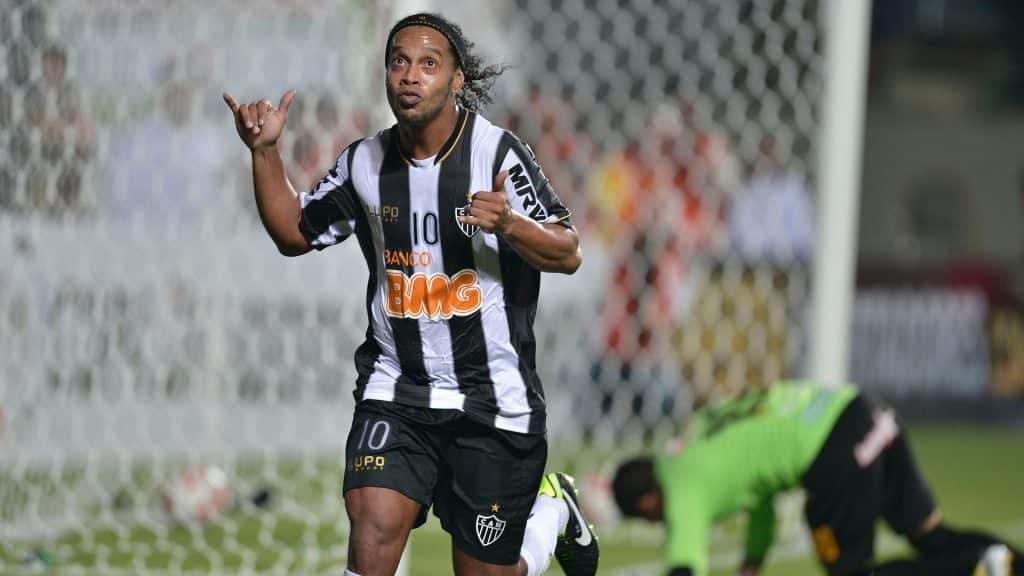
Ronaldinho joined Atlético Mineiro in 2012, marking a significant chapter in his career as he opted to play for a club outside the traditional Brazilian giants. His arrival was met with immense enthusiasm, and he quickly became a key figure for the team. During his time at Atlético, Ronaldinho showcased his remarkable skill and creativity, helping the club achieve unprecedented success.
In 2013, he played a pivotal role in leading Atlético Mineiro to victory in the Copa Libertadores, the club’s first title in this prestigious tournament. His performances were nothing short of magical, including a standout display in the semifinals against Newell’s Old Boys, where he scored a stunning free-kick and provided crucial assists.
Ronaldinho’s charisma and flair endeared him to fans, who embraced his joyful playing style. He left Atlético Mineiro in 2014, but his impact on the club and its supporters remains a cherished part of his legacy, as he brought excitement and hope to a passionate fanbase.
At the 2013 FIFA Club World Cup held in Morocco in December, Atlético lost 3–1 to Raja Casablanca in the semi-final, with Ronaldinho scoring from a free-kick. As the final whistle blew, the Raja Casablanca team rushed to their childhood idol and stripped him down to his underpants in search of souvenirs.
Querétaro 2014-15
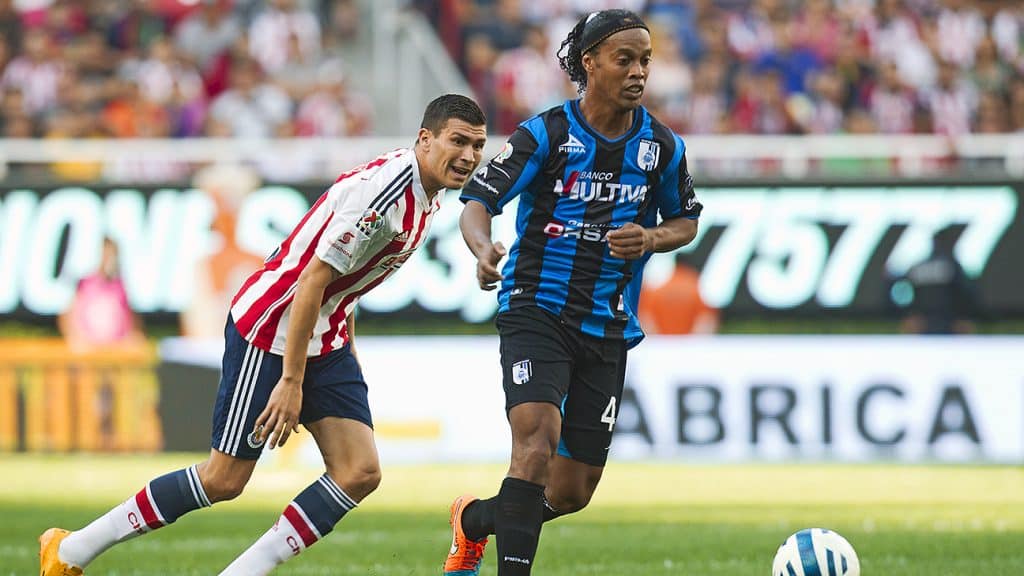
In 2014, Ronaldinho made a surprising move to Querétaro, a club in Mexico’s Liga MX, marking his first foray into North American football. His arrival generated significant buzz, as fans were eager to witness the magic of a football legend in their league. During his tenure with Querétaro, Ronaldinho played a crucial role in elevating the club’s profile and attracting attention to Mexican football.
He scored 5 goals and provided several assists in just over a year, showcasing his trademark flair and creativity on the pitch. Despite being in the twilight of his career, Ronaldinho’s presence brought excitement to matches and inspired teammates and fans alike.
He helped Querétaro reach the final of the Liga MX playoffs, where they finished runners-up to Santos Laguna. In June 2015, Ronaldinho, now 35, announced his departure from the club.
Fluminense 2015
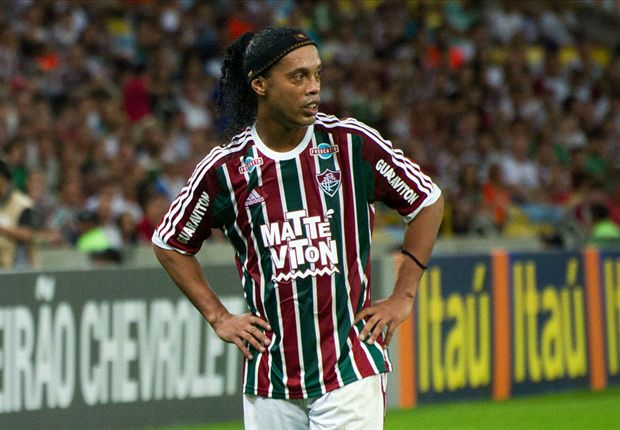
Ronaldinho signed with Fluminense in 2015, returning to Brazil for one final chapter in his illustrious career. Despite signing an 18-month contract, Ronaldinho and Fluminense agreed to part-ways after only two months.
Fluminense sporting director Mario Bittencourt stated, “Ronaldinho asked us for a meeting. He respectfully told us he didn’t feel he was able to perform as well as he wanted and that it was a bad situation for him. He made a great gesture in saying he wasn’t being the player he felt he could be right now. I’ll never speak about whether or not he is retiring. That’s not something you say about a player of his calibre. He was always spectacular, as a player and person.”
Brazil 1999-2013
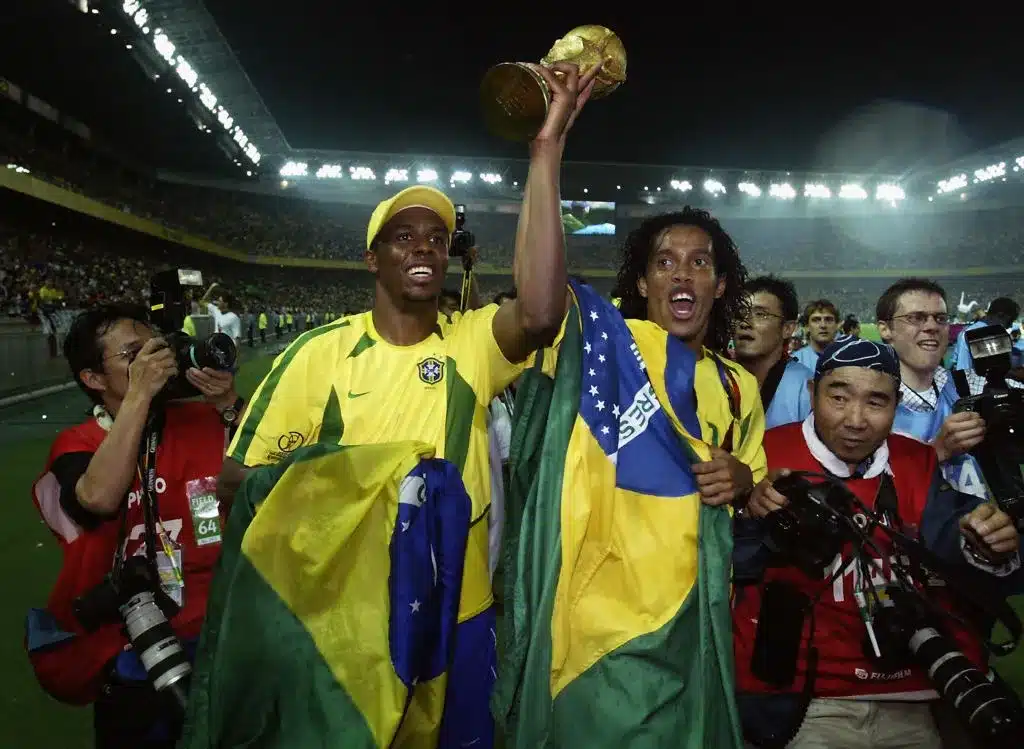
Ronaldinho’s career with the Brazilian national team is a testament to his extraordinary talent and impact on the global stage. He made his debut in 1999 and quickly became a fan favourite.
One of the highlights of his international career came during the 2002 FIFA World Cup in South Korea and Japan, where he played a pivotal role in Brazil’s triumph. Ronaldinho’s dazzling performances included a memorable free-kick against England in the quarterfinals, showcasing his ability to shine on the biggest stage.
In addition to the World Cup, Ronaldinho contributed to Brazil’s success in various tournaments, including winning the Copa América in 1999 and the FIFA Confederations Cup in 2005. Ronaldinho also won a bronze medal with Brazil at the 2008 Olympic Games.
Throughout his international career, Ronaldinho earned 97 caps and scored 33 goals, leaving an indelible mark on Brazilian football. Ronaldinho is remembered fondly by all football fans, with many associating his unique playing style as the peak of footballing entertainment.

